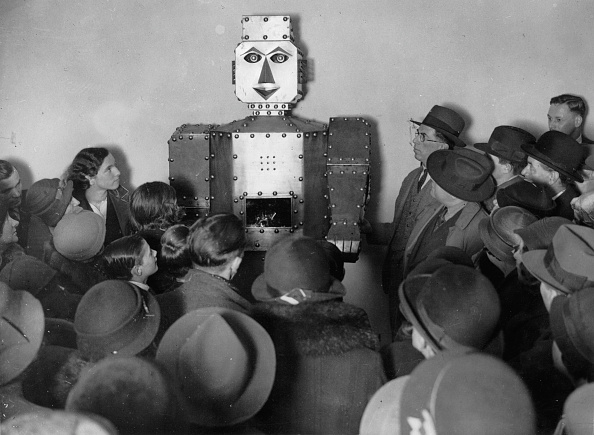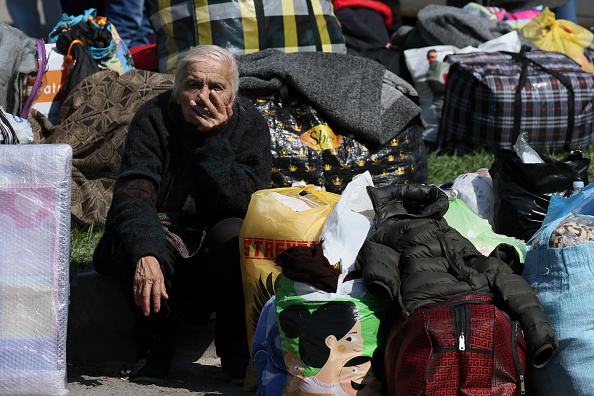After Innocence
Toward a revolution of values that refutes individualism, wealth accumulation, and competition as what defines success in STEM education.
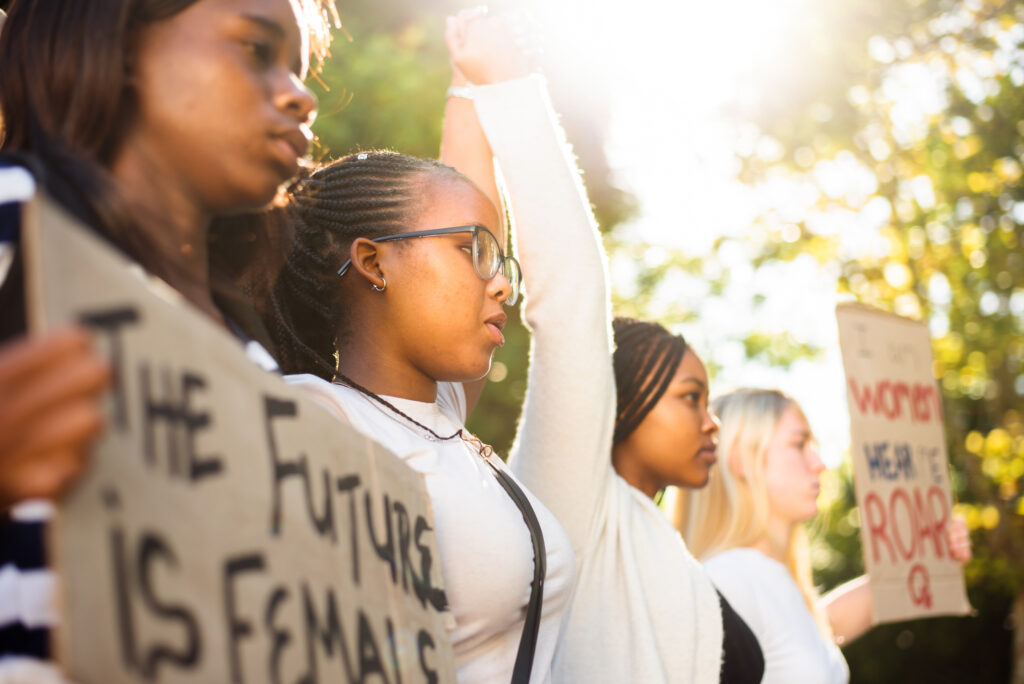
THIS ESSAY IS PART OF THE SPECIAL ISSUE “AFTER LIFE: IDENTITY AND INDIFFERENCE IN THE TIME OF PLANETARY PERIL.” IT FEATURES PAPERS PRESENTED AT THE INAUGURAL SYMPOSIUM OF THE DEMOCRACY INSTITUTE AT THE AHIMSA CENTER AT CAL POLY POMONA, WHICH WAS CO-SPONSORED BY THE INSTITUTE FOR NEW GLOBAL POLITICS, IN MARCH 2023.
As a former electrical engineer and high school mathematics teacher, I know all too well what it takes to succeed as a woman of color in Science, Technology, Engineering and Mathematics (STEM) fields; and, what success in STEM fields takes from you along the way. Now, as a learning scientist and education researcher, I spend much of my time speaking with and observing racially minoritized students in schools. I work with students and teachers in the hopes of new language, pedagogy, and practices that will safeguard minoritized students’ sense of dignity, integrity, and identity in the context of disciplinary – mathematics and science – learning.
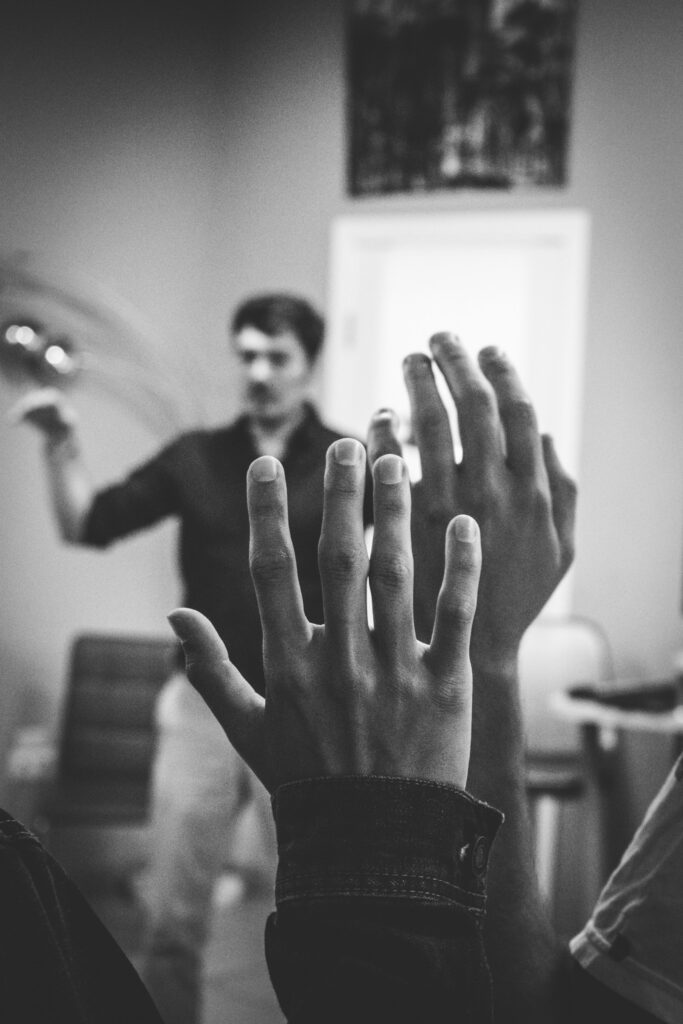
Credit: Artem Maltsev
In my work, I draw on sociocultural learning theory, a perspective in which culture, history, society, language, and power are central to the study of learning (Vygotsky, 1978). These days, I am caught thinking about children’s innocence, and the fate of such an idea in this era of planetary peril, democratic precarity, and global social rupture. In particular, I am mulling over the possibility of an era After Innocence, a time when adults relinquish the idea of children as “innocents” and instead recognize the consequential political and disciplinary expertise they hold: an expertise we negate every time children are told in schools and society, “You are not old enough yet.”
Eradicating the Untroubled Center
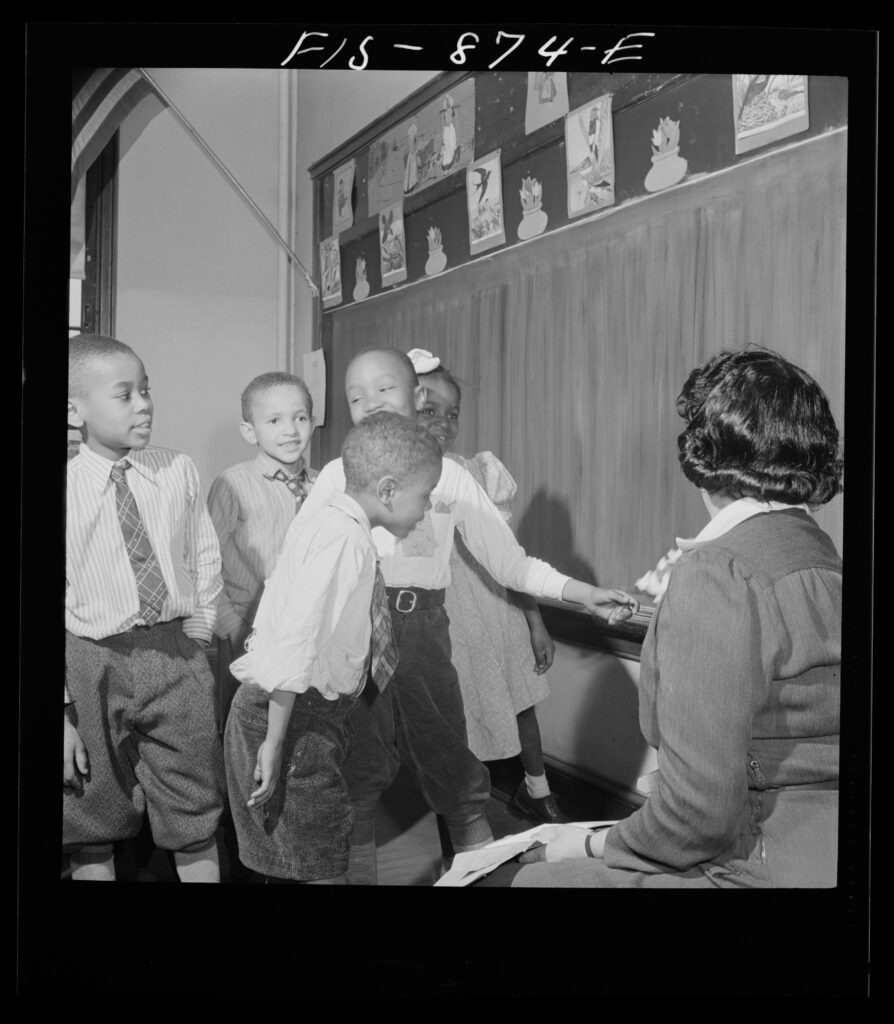
Office of War Information. Overseas Picture Division. Washington Division; 1944. Courtesy of Library of Congress
The notion of Innocence in schools is adjacent to what critical scholars describe as the normative, privileged, and untroubled center of U.S. schools: The historical and contemporary entrenchment of policies, practices, and pedagogies built to meet and maintain the ideological and material comforts of racialized white children and their white teachers (Fine, Weis, & Powell, 1997; Leonardo & Broderick, 2011). Critical legal scholars argue Whiteness as property that transforms into the common sense that becomes law (Harris, 1993). Similarly, the untroubled center of public schools is the common sense of whiteness that is both roadmap and boundary maker in matters of teaching, learning, and curricula. The enduring untroubled center explains why “questions of difference are suspended or suffocated” by adult educators, and why “the particular costs of bracketing differences are absorbed by students of color” (Fine, Weis & Powell, 199, 25). In an era After Innocence, we will find the normative proposition that adults are experts and youth are novice upended; schools will open to an entirely new landscape of disciplinary teaching and learning; and, children will find themselves at the helm of a democratic society worth defending.
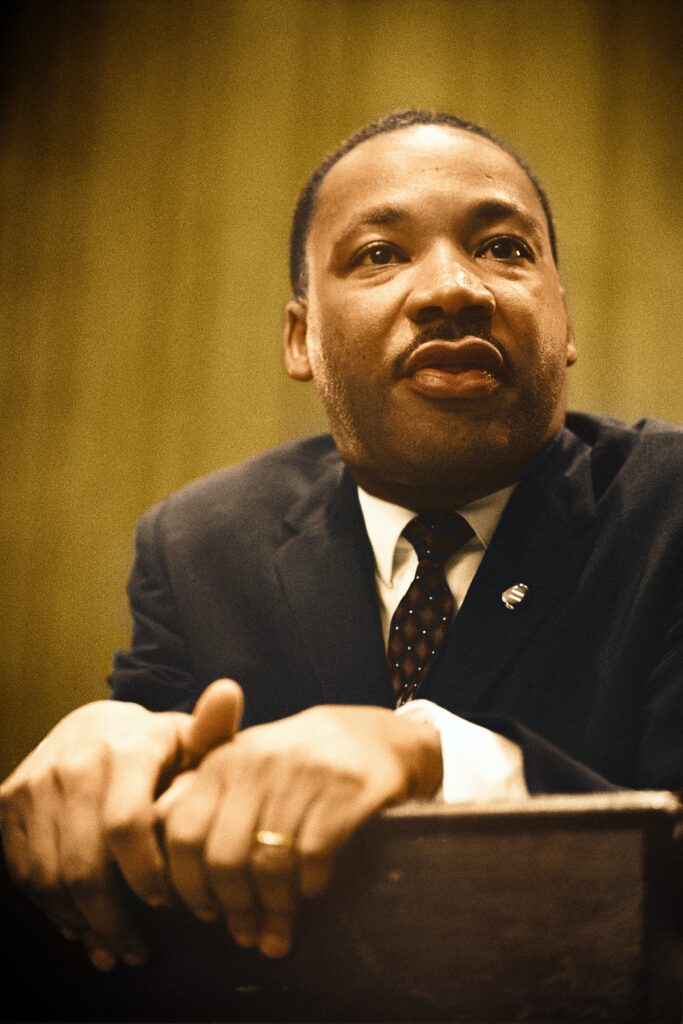
“Martin Luther King press conference / [MST].” Original black and white negative by Marion S. Trikosko. Taken August 26th, 1964, Washington D.C, United States (@libraryofcongress). Colorized by Jordan J. Lloyd. Library of Congress Prints and Photographs Division Washington, D.C. 20540 USA https://www.loc.gov/item/2003688129/
Reorienting the Axiology of Learning
After Innocence, there stands an opportunity to reorient the axiology of public schooling, particularly in mathematics and science education. Since the launch of Sputnik in 1957, but even dating back a half century prior to the Committee of Ten, mathematics education has been a project of U.S. global economic and military domination that implicates schools. It is perhaps unsurprising, therefore, that I find footing in Dr. King’s 1967 Riverside Church Speech on the Vietnam War in which he called for a revolution of values to upend the “giant triples” of “racism, materialism, and militarism” by moving from a ‘thing-oriented’ to a ‘person-oriented’ society; a democracy where property rights or profit are not more important than people.
In an era After Innocence, when the untroubled center is no more, we materialize the possibility of a revolution of values that refutes individualism, wealth accumulation, and competition as what defines success in STEM. This revolution of values already appears in the words and actions of children learning mathematics today (Sengupta-Irving & Vossoughi, 2019) but are denied because adults assert themselves as experts who assimilate children into the world as it has been constructed for them. Consider, for example, a simple elementary mathematics task that asks, “How does the fraction 5/5 compare to the fraction 4/4?” with the untroubled expectation that the child will say, “the fractions are equal.” Now, imagine the raised hand of an African American female student who argues 5/5 is larger than 4/4 and reasons, if a cookie or pizza were cut into five pieces and the same were cut into four, the first allows for more people to eat than the latter and, therefore, 5/5 is greater than 4/4 (see Ball & Wilson, 1996).
The impulse of any teacher, mathematician, or adult more broadly, would be to think through the pedagogical moves that will take this child from the wrong answer to the “right” one as quickly as possible. What that misses, is the very real disciplinary and political insight she is offering to us. What does her answer signal about the difference between arithmetic and economic reasoning? What does her answer suggest about income inequality or feeding a family on a fixed income? What does it mean for her to suggest there is value in more people eating a smaller slice, than fewer people receiving a bigger one? Indeed, she invites us to speculate about how quantitative reasoning is a relational practice among people, it is a familial practice between people, it is a wealth sharing practice for people. What would it mean for STEM professionals to be like her – reasoning about algorithms, data, and society in a people-oriented and not thing-oriented way?

As a child in school who is subject to adult expertise at every turn, her reasoning is unintelligible to the discipline and most likely, to her teacher, which leaves her vulnerable to correction until she assimilates to the values of the untroubled center. Which is why, After Innocence, when her expertise is no longer negated, a new axiology for learning opens up. And with it, an ontological freedom for the child: A freedom to refuse her assimilation into the logics of a profit-oriented society as we are, and instead assert a people-oriented society as it needs to be in this era of planetary peril, democratic precarity, and social rupture.
Inviting Epistemic Heterogeneity
I suspect the untroubled center of mathematics and science will also fall in the era After Innocence. These disciplines, the cornerstones of objectivity, empiricism, and rationale on which we are told powerful nations and civilized societies must be built, will give way to new epistemic possibilities. Consider, for example, a classic science taxonomy task that asks, “Which of these is living and which are nonliving?: Human, Tree, Water.” From the epistemic standpoint of Western Modern Science, the untroubled center of the discipline, the answers are: Living, Living, and Nonliving, respectively. Now, imagine the raised hand of an African American boy who asks how water can be described as nonliving when needing water defines the living? How can the nonliving nourish the living? (see Bang, Warren, Rosebery, & Medin, 2014)
Resisting the impulse to assert adult expertise, we might instead follow his line of reasoning as both disciplinary and political. For example, we might begin with the idea that water is necessary for life and therefore, access to clean water is a human right. But perhaps more radical than that, what if water itself is taken to be living? What rights does water have? And now, the child’s question resembles what Shinnecock Water Scientist and Legal Scholar Kelsey Leonard argues – solving water injustice in our world begins with recognizing that water is a living relation and then, granting it legal personhood and therefore, protection. In the U.S., corporations have been granted legal personhood but not water.
Indeed, viewed through Indigenous epistemologies of science the answers to the task are: Living, Living, and Living. Critical learning scientists might describe this child’s display of epistemic heterogeneity as a bid for epistemic justice. But After Innocence, when the untroubled center is no more, this is what it would mean to learn science: to develop the epistemic dexterity needed to solve our most wicked problems of nature and society (Medin & Bang, 2014). Something that we as adults are only now coming to realize, as headline after headline attests to Western Modern Scientists ceding ground to other ways of knowing and being. When the untroubled center of science falls, and epistemic heterogeneity takes root, children will be prepared to undo the human over nature relationship of domination that made climate catastrophe inevitable.
After Innocence, when the untroubled center is no more, disciplinary teaching and learning can be made anew. Civics as teaching a citizenship of consumption relents to political action and nonviolence; Mathematics as weapon of gerrymandering and voter suppression redirects toward community renewal and resistance; and of course, in Language Arts, Toni Morrison, Alice Walker, Maia Kobabe and all the other writers whose books have been banned, largely by racialized white parents in the name of their children’s innocence, will finally return and testify to the breadth and depth of human knowing and being. In short, disciplinary teaching prevents the untroubled center from regrowth and in turn, creates space for the dignity and expertise of racially minoritized youth to flourish.
Embracing a Telos Unknown
Some in the Learning Sciences assert a close relationship between theories of learning and theories of society (Philip & Sengupta, 2019) – that our explanations of human learning mirror the political, cultural, and social learning as needed of society. In the case of Soviet psychologist Lev Vygotsky (1896-1934), this is clear: a Marixst whose sociocultural theory of learning and development was a countervailing force to western capitalist theories of learning in post-revolutionary Russia. Vygotsky’s views on people and society differed in important ways from his contemporary, Swiss Psychologist Jean Piaget (1896-1980). Piaget asserted that development and biological maturation precede learning, and that the telos of development is toward a known outcome in Western societies. In contrast, Vygotsky asserted that learning precedes development and biological maturation; that there is a zone of proximal development where learning leads development. As important for Vygotsky, the telos of learning was not assimilation into the adult world but rather an endpoint that is unknown, and as is needed for social change. If development were a train, both theorists would describe child development as moving forward from the caboose to the engine but for Piaget, the train is at a standstill (endpoint known) and for Vygotsky, the train is in motion (endpoint unknown).
Liberal democracies are fundamentally Piagetian: You must be 18 years old before you can vote (or even older if Republicans prevail); you must be at least 30 years old to be a senator and 35 years old to be a President. But we know it is more likely that the future of this country would be entrusted to an 80 year old President before we would entertain the idea of a 35 year old one. Thus, what prevents the era After Innocence is adult reluctance, if not ignorance. Minoritized children are loud and clear in their refusal of our ways: From the quiet moves of children in math and science classrooms to the clear and present cries of youth activists at Marjory Stoneman Douglas High School who refuse the adult deception that guns keep them safe, to Elizabeth Wathuti, Vanessa Nakate and other youth climate leaders who refuse the adult deception that the planet is not dying; and to the One Mind Youth Movement who refuse the adult deception that an oil pipeline must be built near Standing Rock Reservation.
I call forth an era After Innocence where an eradication of the untroubled center, a new axiology for learning, epistemic heterogeneity, and social change await. Then and only then will adults have moved past a development-bound “not yet” view of youth and opened themselves to new possibilities for intergenerational learning and activism; the coming of a new global paradigm for democracy, dignity, and justice worthy of the next generation and the generations to come.
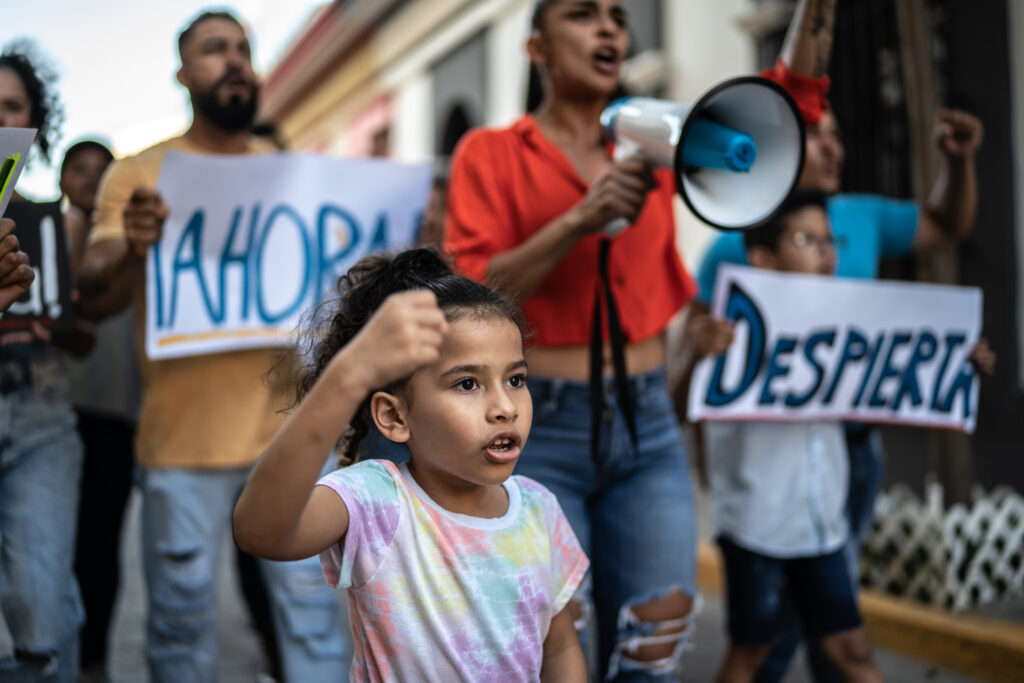
Tesha Sengupta-Irving is Associate Professor, Learning Sciences & STEM Education and Affiliate Associate Professor, UCB Center for Race & Gender at the University of California Berkeley.
References
Ball, D. L., & Wilson, S. M. (1996). Integrity in teaching: Recognizing the fusion of the moral and intellectual. American educational research journal, 33(1), 155-192.
Bang, M., Warren, B., Rosebery, A. S., & Medin, D. (2012). Desettling expectations in science education. Human Development, 55(5-6), 302-318.
Fine, M., Weis, L., & Powell, L. (1997). Communities of difference: A critical look at desegregated spaces created for and by youth. Harvard educational review, 67(2), 247-285.
Harris, C. I. (1993). Whiteness as property. Harvard law review, 1707-1791.
Medin, D. L., & Bang, M. (2014). Who’s asking?: Native science, western science, and science education. MIT Press.
Philip, T. M., & Sengupta, P. (2021). Theories of learning as theories of society: A contrapuntal approach to expanding disciplinary authenticity in computing. Journal of the Learning Sciences, 30(2), 330-349.
Sengupta-Irving, T., & Vossoughi, S. (2019). Not in their name: Re-interpreting discourses of STEM learning through the subjective experiences of minoritized girls. Race Ethnicity and Education, 22(4), 479-501.
Vygotsky, L. (1978). Mind in society: The development of higher psychological processes. Cambridge, MA: Harvard University Press.

